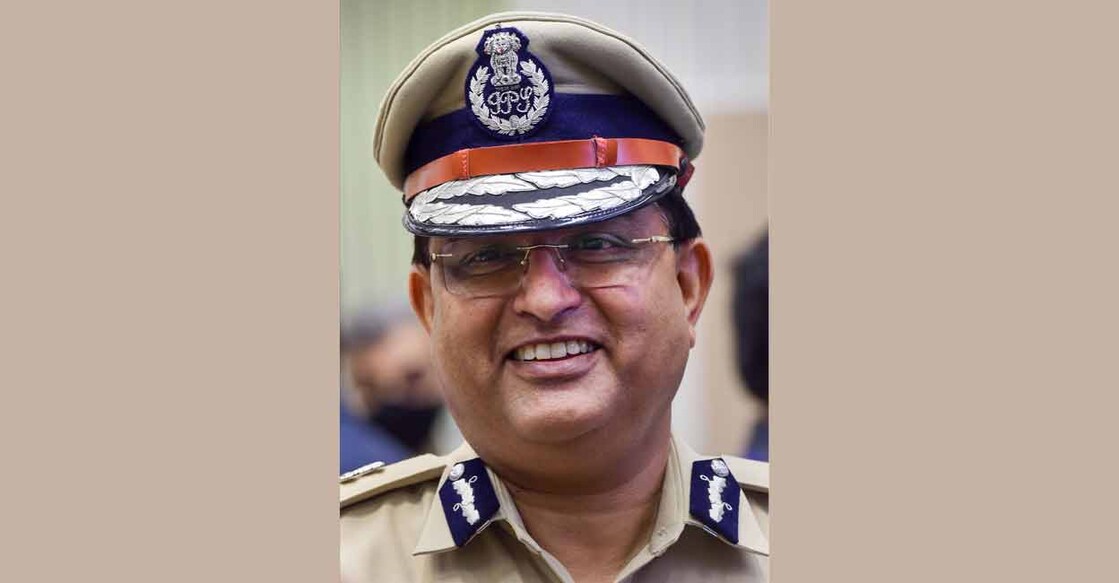HC dismisses plea challenging appointment of Rakesh Asthana as Delhi Police Commissioner

Mail This Article
New Delhi: The Delhi High Court on Tuesday dismissed a PIL challenging the appointment of Gujarat-cadre IPS officer Rakesh Asthana as Delhi Police Commissioner.
The writ petition and the pending applications are hereby dismissed, said the bench of Chief Justice D N Patel and Justice Jyoti Singh.
The 1984-batch IPS officer, serving as the Director General of Border Security Force, was appointed the Commissioner on July 27, four days before his superannuation on July 31.
The petitioner, lawyer Sadre Alam, sought quashing of the July 27 order issued by the Ministry of Home Affairs appointing Asthana as the Delhi Police Commissioner while granting him inter-cadre deputation and extension of service by one year.
The petition claimed that the appointment of Asthana was in clear and blatant breach of the directions passed by the Supreme Court in Prakash Singh case as the officer did not have a minimum residual tenure of six months and no UPSC panel was formed for his appointment of Delhi Police Commissioner.
The Centre, in its affidavit, had said that Asthana's appointment and the extension of his service tenure was done in public interest, keeping in mind the diverse law and order challenges faced by the national capital, which have national security implications as well as international and cross border implications.
Defending his appointment, the Centre said that it felt a compelling need to appoint a person as a head of the police force of Delhi, who had diverse and vast experience of heading a large police force in a large State having diverse political as well as public order problem/ experience of working and supervising Central Investigating Agency(s) as well as para-military forces.
The Centre, submitted that the PIL, as well as the intervention of NGO Centre for Public Interest Litigation (CPIL) - which has challenged Asthana's appointment before the Supreme Court, deserves to be dismissed with exemplary costs.
CPIL claimed before the high court that the PIL was mala fide and a complete copy-paste of its plea pending before the apex court.
Asthana, in his affidavit, told the court that there was a sustained social media campaign against him and the legal challenge to his appointment was an abuse of process of law, arising from vendetta.
He said that ever since he was appointed Special Director, CBI, proceedings are being consistently filed against him by certain organisations as part of a selective campaign.
On August 25, the Supreme Court, while hearing the petition by CPIL, had asked the high court to decide preferably within two weeks the plea pending before it against the appointment of the senior IPS officer as Delhi Police Commissioner.
Chronology of Asthana's appointment as Delhi Police Commissioner
The following is the chronology of events in a case challenging the appointment of Gujarat-cadre IPS officer Rakesh Asthana as Delhi Police Commissioner with the Delhi High Court dismissing the plea:
Jul 27, 2021: Ministry of Home Affairs, appoints Rakesh Asthana as Delhi Police Commissioner. Grants Asthana inter-cadre deputation and extension of service by one year.
Aug 6: NGO 'Centre for Public Interest Litigation' moves SC challenging the appointment on various grounds.
Aug 17: Lawyer Sadre Alam files PIL in Delhi HC challenging the appointment of Asthana.
Aug18: Delhi HC bench headed by Chief Justice D N Patel hears the plea, refuses to issue notice.
Aug 25: SC hears NGO's plea, asks HC to decide the PIL pending before it preferably within two weeks.
Sep 1: Delhi HC issues notice on PIL, seeks response from the Centre and Asthana.
Sept 27: Delhi HC reserves verdict on Alam's PIL against the appointment.
Oct 12: Delhi HC dismisses the PIL.

